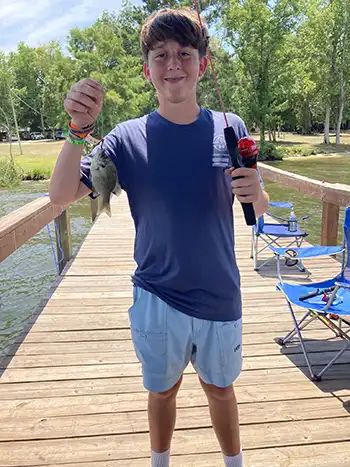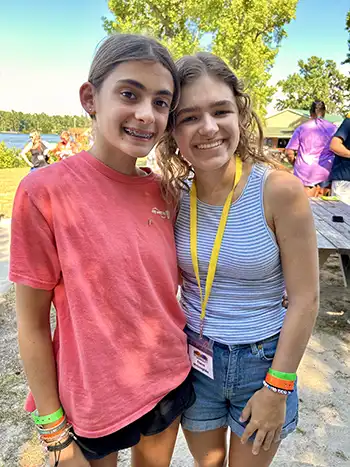September brings us many refreshing changes: summer temperatures begin to subside, the leaves start to turn their beautiful colors and football is in full swing. But it is also a time set aside to acknowledge a terrifying reality for some families: Childhood Cancer Awareness Month. Every 3 minutes, a family is told their child has been diagnosed with cancer, according to the American Childhood Cancer Organization. To put that into perspective, in the span of that football commercial break, somewhere a family’s world has been upended.

Yet amid the onslaught of things to follow – mounting medical bills, transportation and childcare needs, testing, treatments, surgeries and the anxiety for the unknown, there is hope and support.
“Unfortunately, when we tell a person they have cancer, we flip their world upside down,” said Tiombe Plair, a cancer and blood disorders social worker with MUSC Shawn Jenkins Children’s Hospital. “But there are organizations locally and nationwide which can help them in so many ways.”
According to Children’s Cancer Partners of the Carolinas (CCPC), South Carolina only has three treatment locations for pediatric cancer. While Mount Pleasant is lucky enough to have Shawn Jenkins Children’s Hospital in our backyard, others must travel hours for treatments. CCPC offers support with travel and lodging, along with other necessities like meal support that can make a big difference. “If you have daily radiation and you’re coming from Greenville to Charleston for treatment, it makes more sense to stay overnight. They can help with local lodging,” Plair explained. She added that CCPC also hosts virtual peer events.
Make-a-Wish and Carolina Sunshine for Children are both ‘wish agencies.’ “These wishes are usually something that an average family can’t do themselves; a once-in-a-lifetime family adventure, a whole shopping spree for all things bike-related, a skateboard signed by Tony Hawk that no one else has – those are just examples,” she said. “These wish agencies want to acknowledge that you’ve battled and overcome a lot, and this is one way your community can celebrate you.”
Courageous Kidz and Camp Happy Days both offer year-round support to cancer patients and their families by providing financial assistance to help with groceries, gas and everyday needs, and by connecting kids who have had cancer – and their siblings – through in-person and virtual camps.
Mount Pleasant’s Brady LaBelle, now 14, started attending Camp Happy Days three years ago when he was finishing cancer treatments. “It was really fun making tons of friends throughout the state who have gone through the same thing as me,” he smiled. “Most of the week at camp we just have fun, but a few times in the week we get together and focus on everyone’s experiences. It helps me talk to people who are my age – and now my friends – who have gone through the same thing.”

Claire McLoughlin began attending the camp at age 10; her younger sister Elaina had leukemia and is a classmate of LaBelle’s. As a sibling to someone fighting cancer, the experience has helped Claire as well. “Camp Happy Days has made a lifelong impact on me. My experiences there over the years have encouraged me to try new things and be open with people going through medical challenges. The camp is free, so it gives all children the chance to have a fun-filled week, separate from the stresses of cancer. Camp Happy Days is a huge family, and I am so grateful to be a part of it,” Claire beamed. She plans to change roles from camper to Counselor-in-Training next summer so that she can make an even bigger impact on the lives of kids with cancer and their families.
To learn about other programs which support families experiencing childhood cancer, Plair recommended contacting your clinic’s social worker to find even more options geared toward a specific diagnosis.
“Families with children fighting cancer often have to reinvent themselves because what was their norm is no longer,” Plair said. “Having access to these organizations and programs can give families and kids a glimpse of normal life again, but in a safe environment, and gives people a sense of hope that they can get through what they are going through.”
By Anne Toole

Leave a Reply